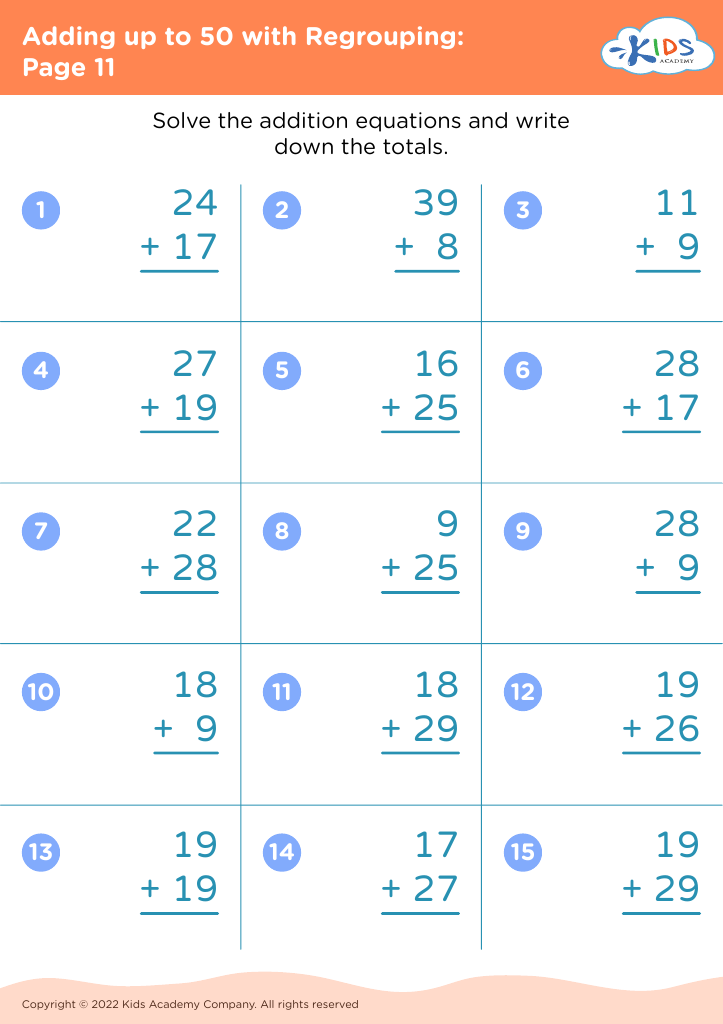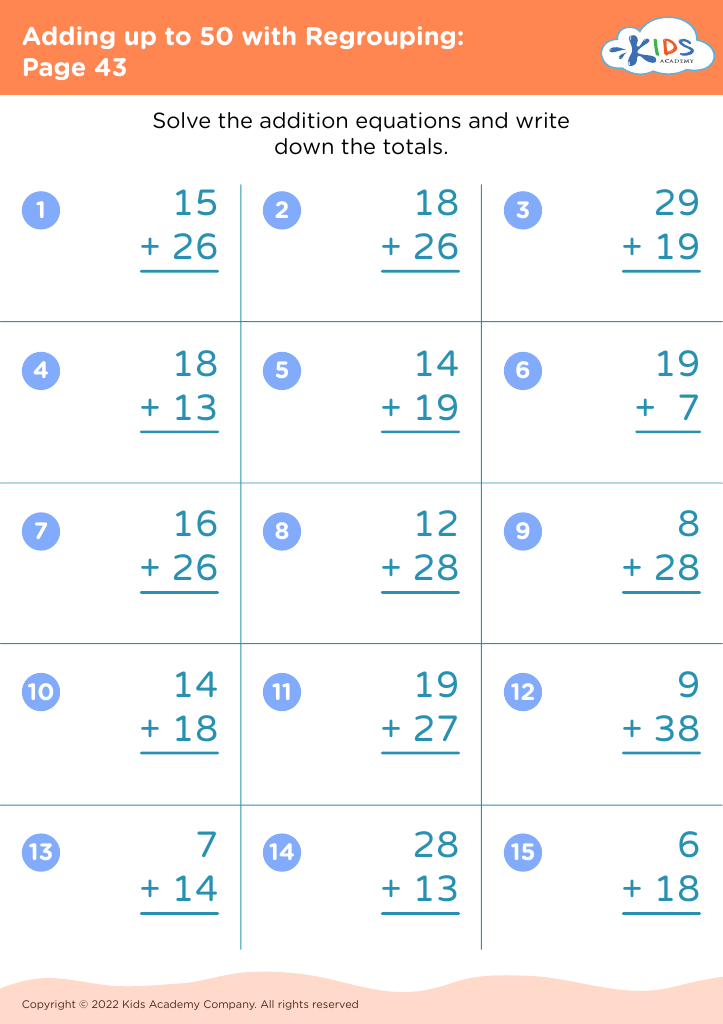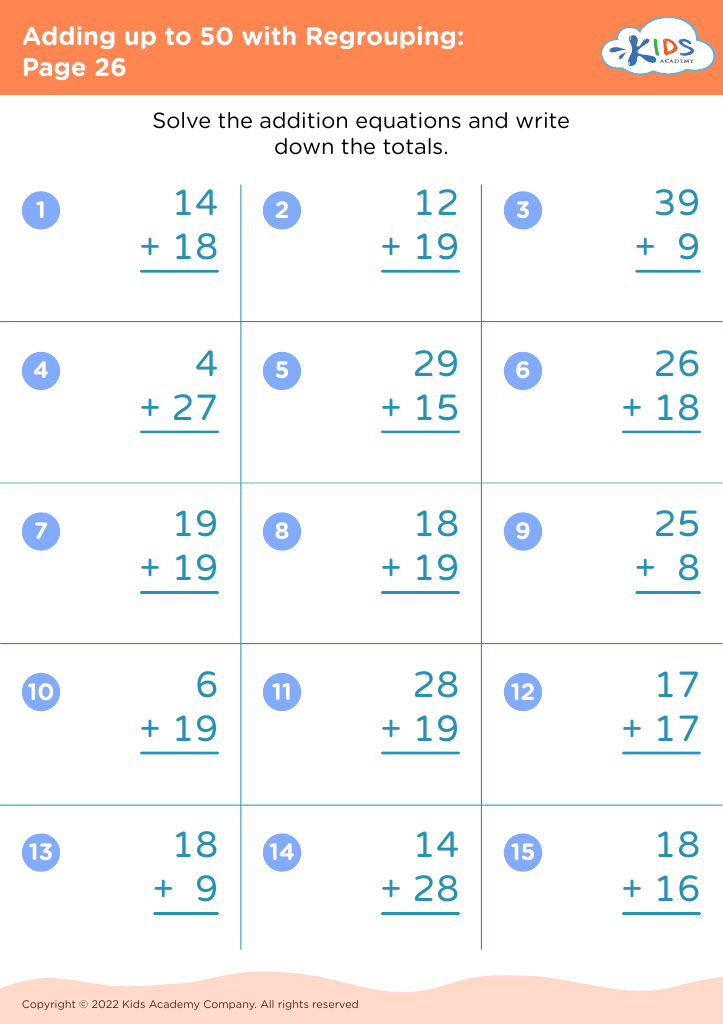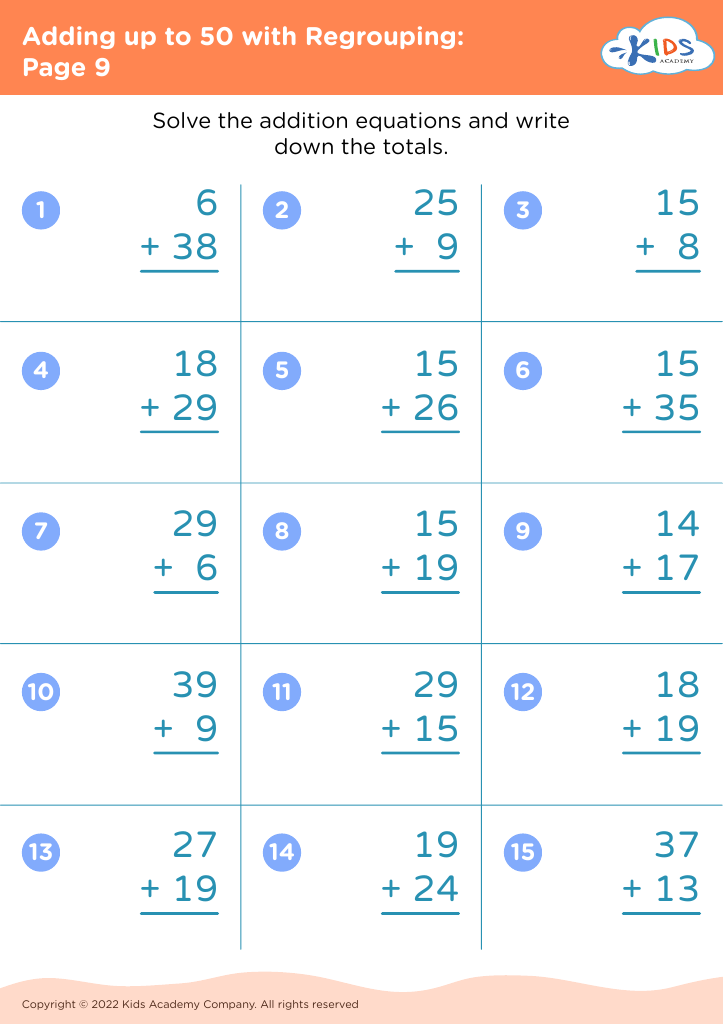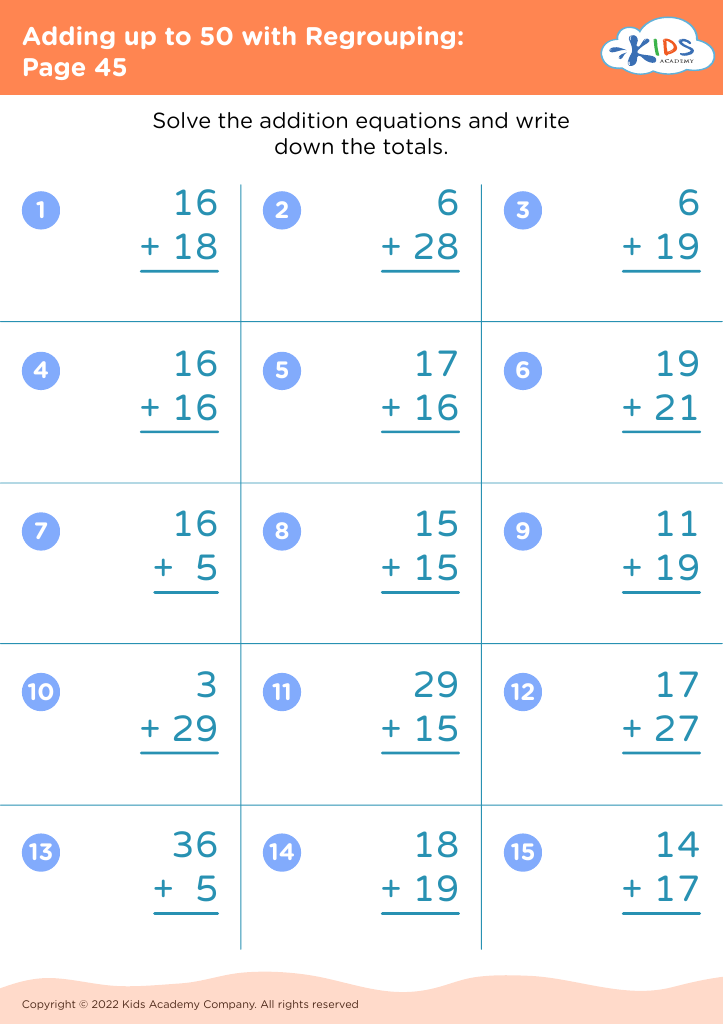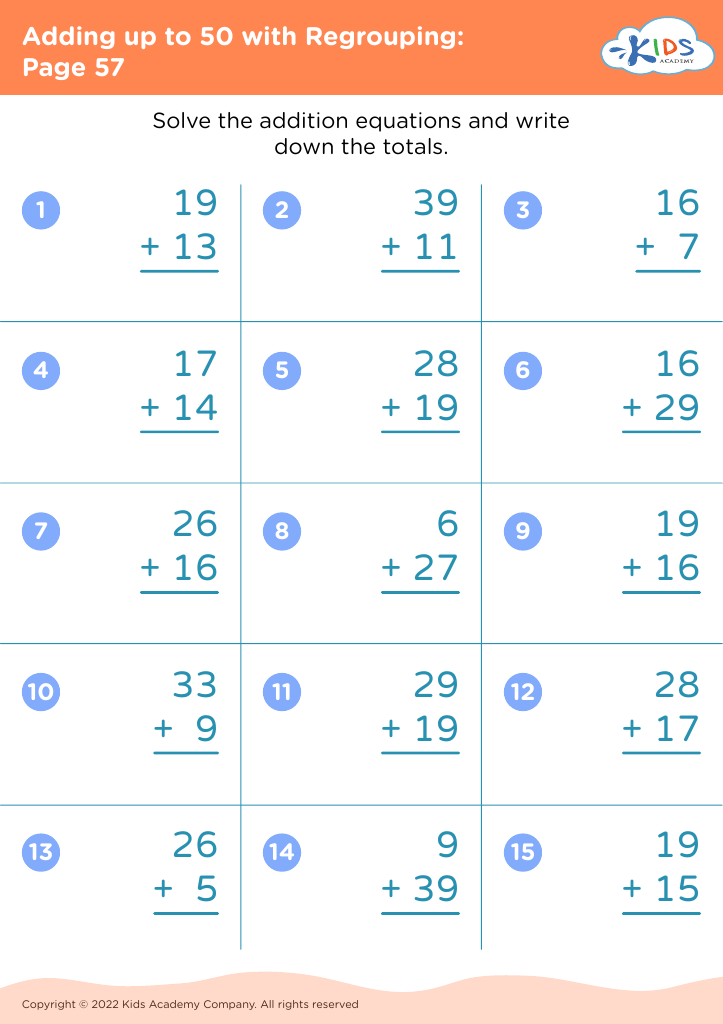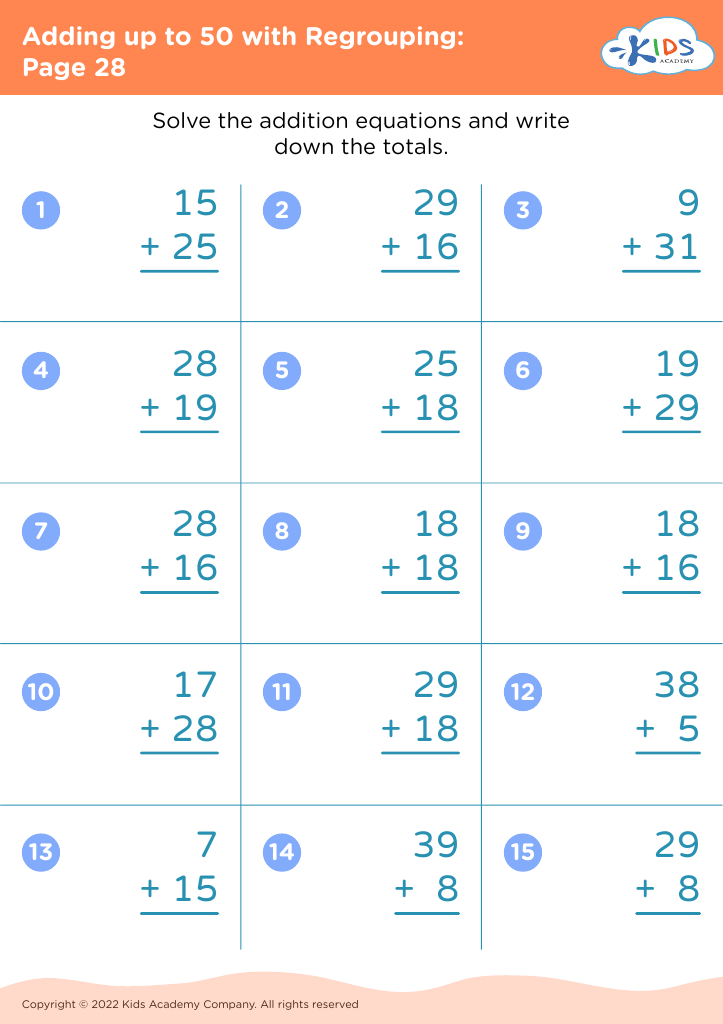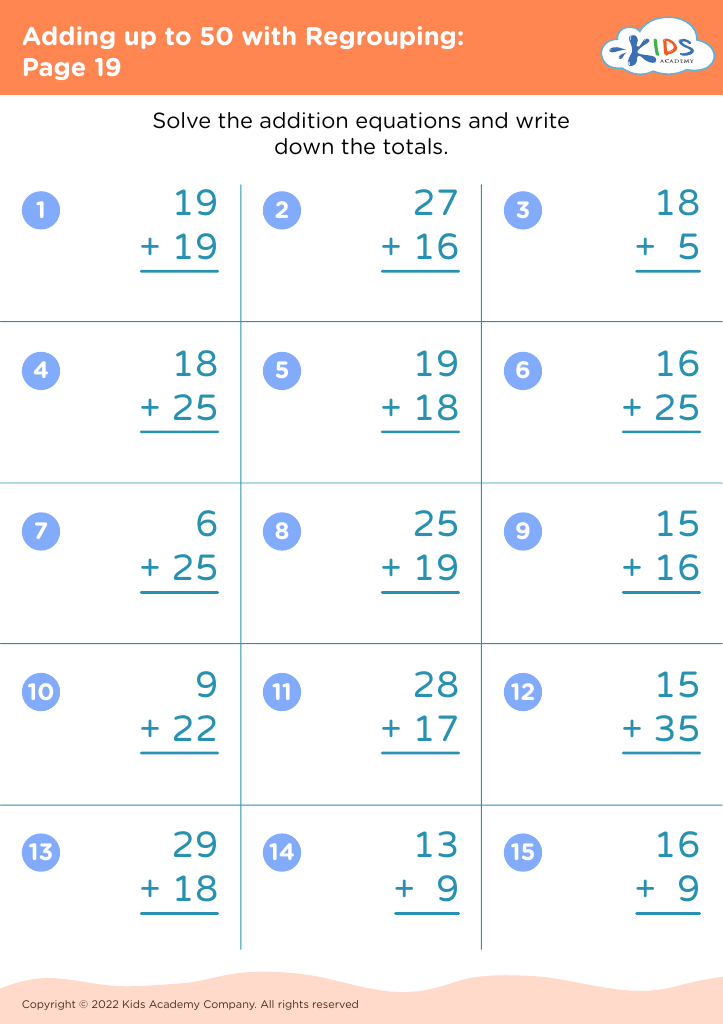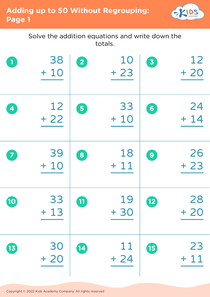Number Recognition Adding up to 50 with Regrouping Worksheets for Ages 7-9
14 filtered results
-
From - To
Mastering number recognition is essential for young learners, and our "Number Recognition Adding up to 50 with Regrouping Worksheets" is designed specifically for children ages 7-9. These engaging worksheets provide practice in identifying and working with numbers up to 50 while introducing the critical concept of regrouping in addition. With a variety of fun and interactive activities, students will enhance their numerical understanding and problem-solving skills. Suitable for classroom use or at-home learning, these worksheets offer a fantastic way to support your child's mathematical journey while keeping them motivated and excited about numbers. Empower your child’s learning experience today!
Number recognition and the ability to add numbers up to 50 with regrouping are critical skills for children aged 7-9. During these formative years, foundational math concepts shape a student's confidence and proficiency in mathematics. Mastering number recognition enables children to identify and manipulate numbers, which is essential for performing arithmetic operations, understanding patterns, and solving problems.
Adding up to 50 with regrouping not only enhances computational skills but also develops critical cognitive abilities such as logical reasoning, critical thinking, and focus. Regrouping, often referred to as “carrying over,” helps children understand the value of place and manipulate larger numbers efficiently. This skill is crucial as they move towards more complex mathematics in later grades, such as addition and subtraction of larger quantities, multiplication, and division.
Furthermore, being proficient in these areas can significantly reduce math-related anxiety in students, set the stage for academic success, and promote a more positive attitude towards learning. Parents and teachers play a vital role in nurturing these skills through engaging activities and support, enabling children to enjoy math and apply it confidently in real-world scenarios. Encouraging mastery in these early grades lays a strong foundation for lifelong mathematical understanding and success.


